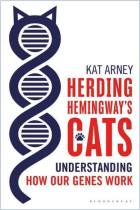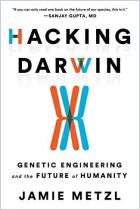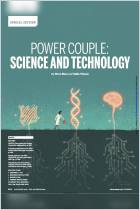From cats with extra toes to “zombie genes,” science writer and broadcaster Kat Arney delves irreverently into the world of genetics. In short, entertaining chapters, she introduces the leading scientists and deepest questions in this complex field. She never stints on the science, yet the text remains breezy and accessible. Arney highlights amazing discoveries in genetics and details how complex organisms arise from simple strings of “DNA letters.” It’s a rapid-fire, rewarding and, given the subject, sometimes complex read. getAbstract recommends Arney’s iconoclastic account to anyone seeking grounding in one of the most striking, fast-developing areas of science.
The Old Man and the Cats with Six Toes
Famed author Ernest Hemingway was fond of polydactyl (six-toed) felines, and introduced them onto his estate in Key West, Florida. Their mutation springs from a fault in a deoxyribonucleic acid (DNA) “control switch,” and not from an error in the gene itself. The “letters” of DNA – A, C, T and G – stand for the chemical “bases” of adenine, cytosine, thymine and guanine. These string together in the familiar double helix in most cells in your body. In 1953, molecular biologists Francis Crick and James Watson deciphered the ladder-like double helix shape of the DNA molecule. The bases that compose the ladder’s “rungs” always pair together – A with T and G with C. Scientists call the specific order of the bases a “sequence.”
Chromosome Pairs
The 46 strings of DNA form into “23 pairs of chromosomes” inside each of your body’s cells; these constitute your genome. Women have two X chromosomes; men have an X and a Y chromosome. The chromosomes reside in the middle of the cell – in its nucleus. This is the DNA “library” from which “RNA polymerase...
















Comment on this summary or Iniciar a Discussão